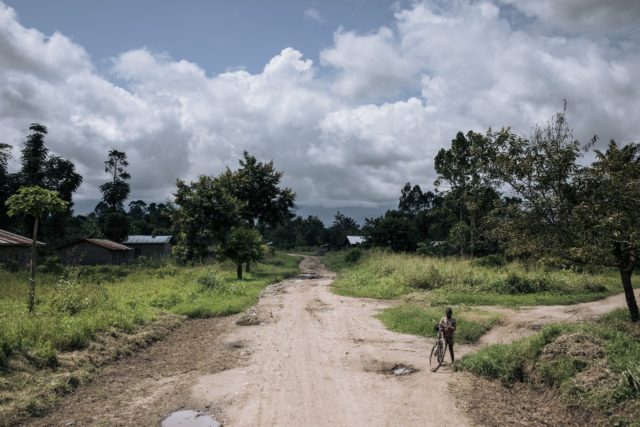A shadowy group called the Allied Democratic Forces (ADF), suspected of links to the so-called Islamic State, has emerged as the bloodiest of the scores of militias that roam eastern Democratic Republic of Congo.
Blamed for brutal massacres in this troubled region, the ADF has now been accused by Uganda of carrying out two blasts on its soil that have left one dead and several injured.
Here’s a look at the major questions:
Who are the ADF?
The ADF was initially a coalition of armed Ugandan groups, the biggest of which comprised Muslims, that opposed Ugandan President Yoweri Museveni.
The group moved across the border into eastern DRC in 1995, establishing itself in the rugged Rwenzori Mountains in North Kivu province.
For more than half a dozen years, the ADF has gained a terrifying reputation for massacres in North Kivu and neighbouring Ituri.
The DRC’s Catholic Church says the group has killed around 6,000 civilians since 2013, while a respected monitor, the Kivu Security Tracker (KST), blames it for more than 1,200 deaths in the Beni area of North Kivu since 2017.
In April 2019, some ADF attacks began to be claimed by Islamic State (IS) through its outlets on social media. It presented the group as its regional branch — the Islamic State Central Africa Province, or ISCAP.
On March 11, the United States placed the ADF on its list of “terrorist groups” affiliated with IS jihadists.
Former hostages of the ADF have described strict rules. Women must wear the veil, sexual relations outside marriage are punished by public beatings, thieves have their hands chopped off, prayers must be observed several times daily and Allah’s name must be invoked before attacks.
On September 22, Congolese troops on a dangerous road in the Beni territory arrested a Jordanian national described as a trainer of ADF forces.
What’s the response?
On May 6, President Felix Tshisekedi stepped up a crackdown on the ADF by declaring a “state of siege” in North Kivu and Ituri, in which top civilian officials have been replaced by senior military officers or police.
According to the latest army toll, “224 ADF combatants” have been killed since then in the Beni region alone, where 232 “collaborators” have also been arrested.
“The military pressure from the state of siege has the advantage of limiting the ADF’s mobility on DRC territory, forcing them to fall back to Uganda,” said journalist Nicaise Kibel’Bel Oka, author of several books on jihadism in the Beni region.
However, ADF-attributed massacres have also extended into Ituri province.
“We have identified the deaths of 537 civilians as a result of ADF activity since the start of the state of siege,” KST’s Pierre Boisselet told AFP.
“We have not seen any real intensification of military pressure… in the context of the state of siege,” he said.
“There have been offensives, sometimes with air support provided by the United Nations mission (MONUSCO), and probably arrests, but not of senior leaders.”
By comparison, the army says it has “captured 23 of their leaders” since the emergency measures were introduced.
Ugandan expansion?
Ugandan authorities say the ADF carried out a suicide bomb attack on a bus near the capital Kampala on Monday that wounded several people in addition to killing the attacker.
The blast appears to be linked to a bombing in Kampala on Saturday that killed one person, according to the Ugandan police.
They also say a police dragnet picked up a number of undercover ADF operatives suspected of hatching a plot to attack “major installations”.
Boisselet was cautious, saying the official statements were too sketchy to convince him that the ADF was now powerful enough to launch attacks in Uganda.
But ‘Bel Oka said, “ADF are also active in Uganda, but they stay low profile because Uganda’s intelligence services are better equipped than those of the DRC.”
In early October, Rwanda, a neighbour of the DRC and Uganda, said it had arrested 13 members of a terrorist cell working with the ADF to plan attacks in the capital Kigali.
Museveni said in October that Uganda was “ready to help” hunting the ADF on Congolese soil, “if the government of Congo authorises us”. So far, nothing has been announced.

COMMENTS
Please let us know if you're having issues with commenting.